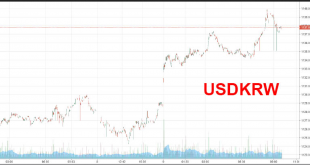VoxEU, March 20, 2019, with Markus Brunnermeier. HTML. Both proponents and opponents have suggested that CBDC would fundamentally change the macroeconomy, either for the better or the worse. We question this paradigm. We derive an equivalence result according to which the introduction of CBDC need not alter the allocation nor the price system. And we argue that key concerns put forward in discussions about CBDC are misplaced. See also our VoxEU book chapter and my paper from last year.
Read More »“Digital Money: Private versus Public,” VoxEU Book, 2019
With Markus Brunnermeier. March 2019. PDF. In Antonio Fatás, editor, The Economics of Fintech and Digital Currencies, VoxEU book, London. We address five key concerns that are frequently put forward: 1. Aren’t digital currencies just a hype, now that crypto ‘currencies’ like Bitcoin have proved too volatile and expensive to serve as reliable stores of value or mediums of exchange? This confuses things. A central bank digital currency (CBDC) is like cash, only digital; Alipay, Apple Pay,...
Read More »“Digital Money: Private versus Public,” VoxEU Book, 2019
In Antonio Fatás, editor, The Economics of Fintech and Digital Currencies, VoxEU book, London, March 2019, with Markus Brunnermeier. PDF. We address five key concerns that are frequently put forward: 1. Aren’t digital currencies just a hype, now that crypto ‘currencies’ like Bitcoin have proved too volatile and expensive to serve as reliable stores of value or mediums of exchange? This confuses things. A central bank digital currency (CBDC) is like cash, only digital; Alipay, Apple Pay,...
Read More »“Kosten und Nutzen eines Vollgeldsystems (Costs and Benefits of `Sovereign Money’),” ifoSD, 2018
ifo Schnelldienst 16/2018, August 23, 2018. PDF.
Read More »“Kosten und Nutzen eines Vollgeldsystems (Costs and Benefits of `Sovereign Money’),” ifoSD, 2018
ifo Schnelldienst 16/2018, August 23, 2018. PDF.
Read More »The Secret History Of The Banking Crisis
Accounts of the financial crisis leave out the story of the secretive deals between banks that kept the show on the road. How long can the system be propped up for? - Click to enlarge It is a decade since the first tremors of what would become the Great Financial Crisis began to convulse global markets. Across the world from China and South Korea, to Ukraine, Greece, Brexit Britain and Trump’s America it has shaken...
Read More »Risk Off: Global Stocks Slide As “Fire And Fury” Results In “Selling And Fear”
US futures are set for a sharply lower open (at least in recent market terms) following a steep decline in European stocks and a selloff in Asian shares, following yesterday’s sharp escalation in the war of words between the U.S. and North Korea. In a broad risk-off move U.S. Treasuries rose, the VIX surged above 12 overnight, while German bund futures climbed to the highest level in six weeks. The Swiss franc gained...
Read More »Cashless Society – Is The War On Cash Set To Benefit Gold?
Submitted by Jan Skoyles via GoldCore.com, Introduction Cash is the new “barbarous relic” according to many central banks, regulators, and some economists and there is a strong, concerted push for the ‘cashless society’. Developments in recent days and weeks have highlighted the risks posed by the war on cash and the cashless society. The Presidential campaign has been dominated for months and again this week by the...
Read More »“Elektronisches Notenbankgeld ja, Vollgeld nein (Reserves for All, But no Sovereign Money),” NZZ, 2016
Neue Zürcher Zeitung, June 16, 2016. PDF, HTML. Ökonomenstimme, June 17, 2016. HTML. Vollgeld seems attractive because it decouples the supply of money from intermediation. By enabling everyone to use legal tender for electronic payments, electronic base money would satisfy a need. Vollgeld would prevent bank runs, at least partly; render deposit insurance unnecessary and reduce moral hazard; could help stabilize the credit cycle; and would redistribute seignorage to the central bank. But...
Read More »Deposit Insurance: Economics and Politics
On VoxEU, Charles Calomiris and Matthew Jaremski discuss the origins of bank liability insurance. They argue that it is redistribution, not the aim to boost efficiency, which explains a lot of the action. … there are two theoretical approaches to explaining the creation and expansion of deposit insurance. The first is an economic approach grounded in potential efficiency gains from limiting bank runs (i.e. the public interest motivation). The second is a political approach grounded in the...
Read More » Swiss Economicblogs.org
Swiss Economicblogs.org



